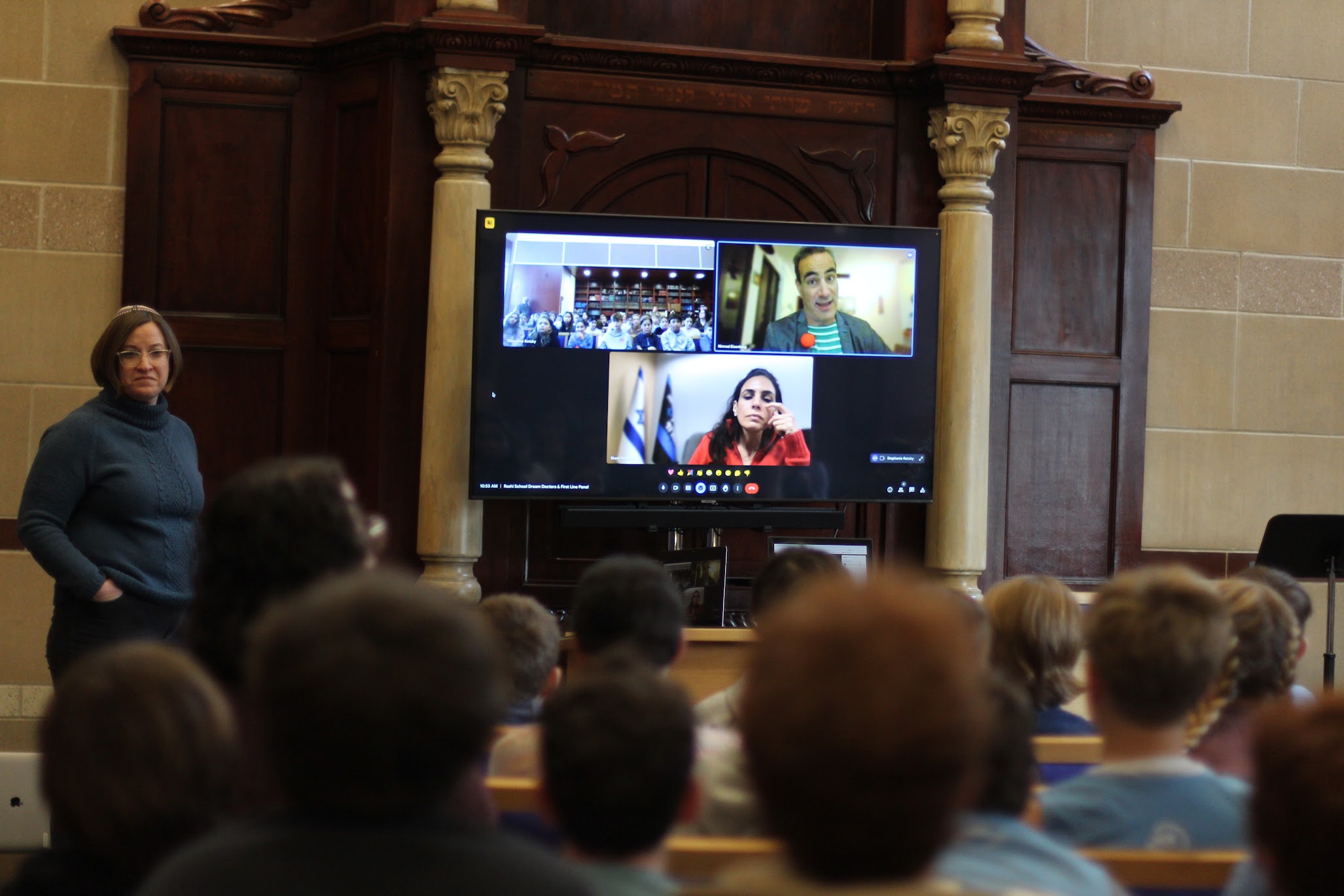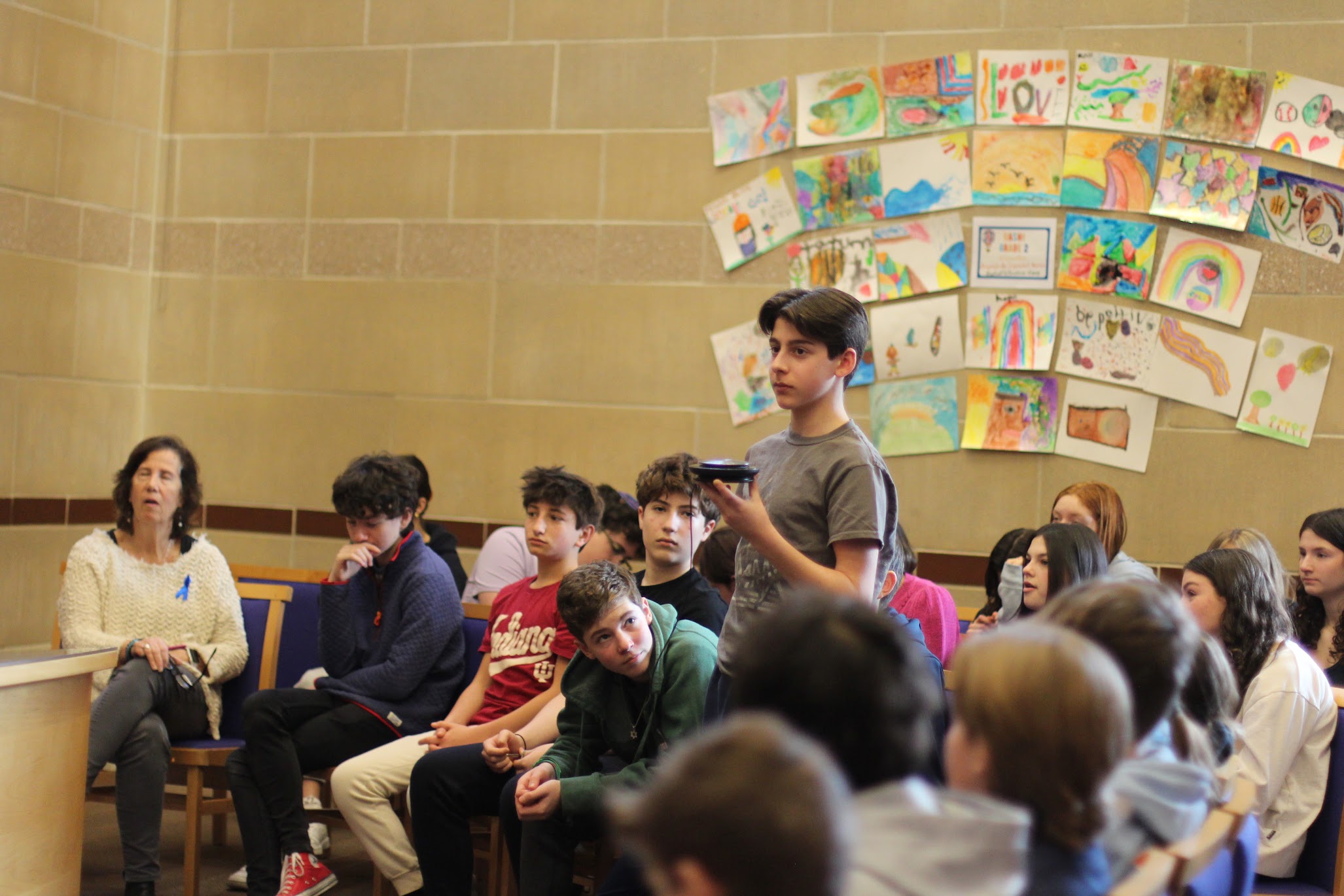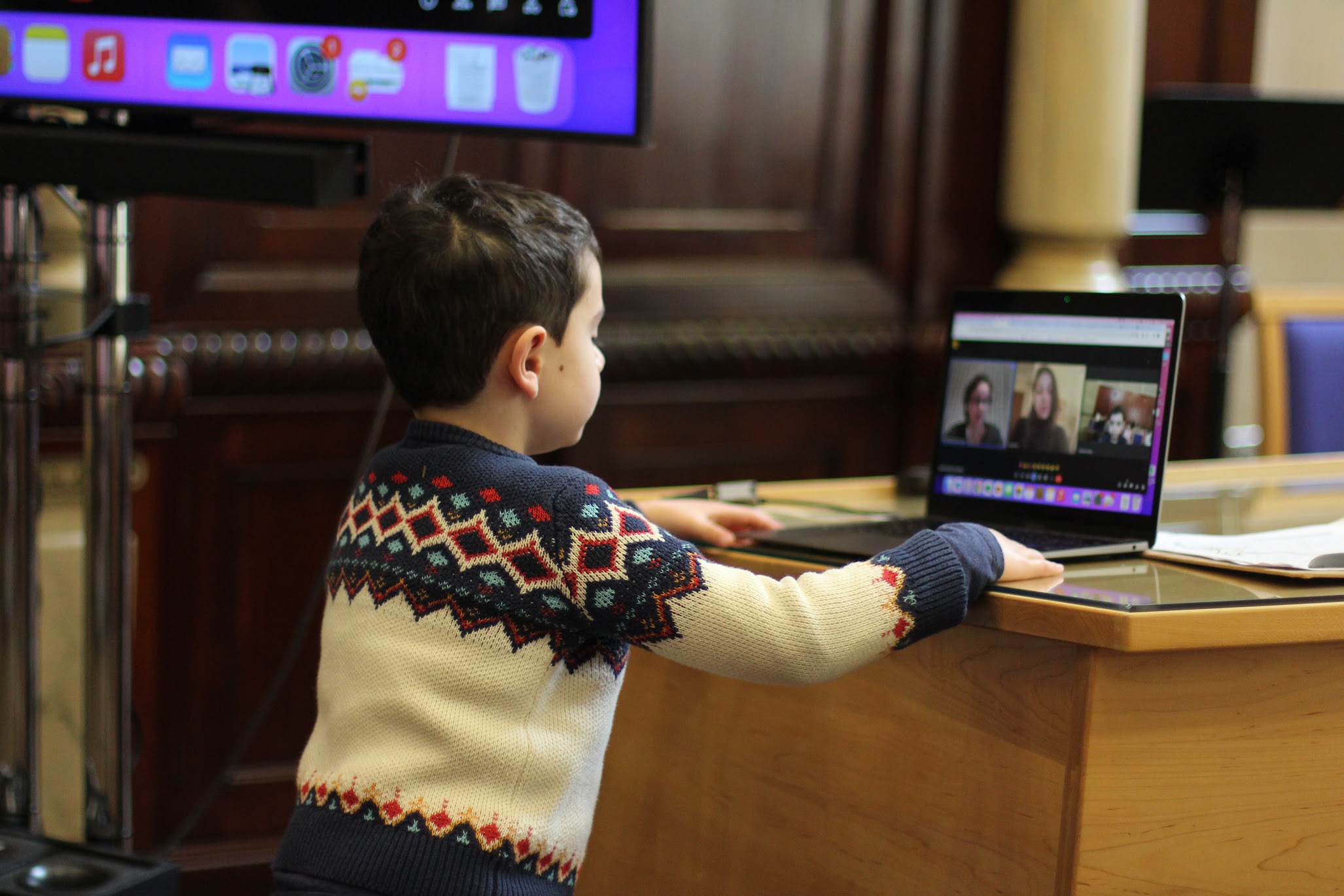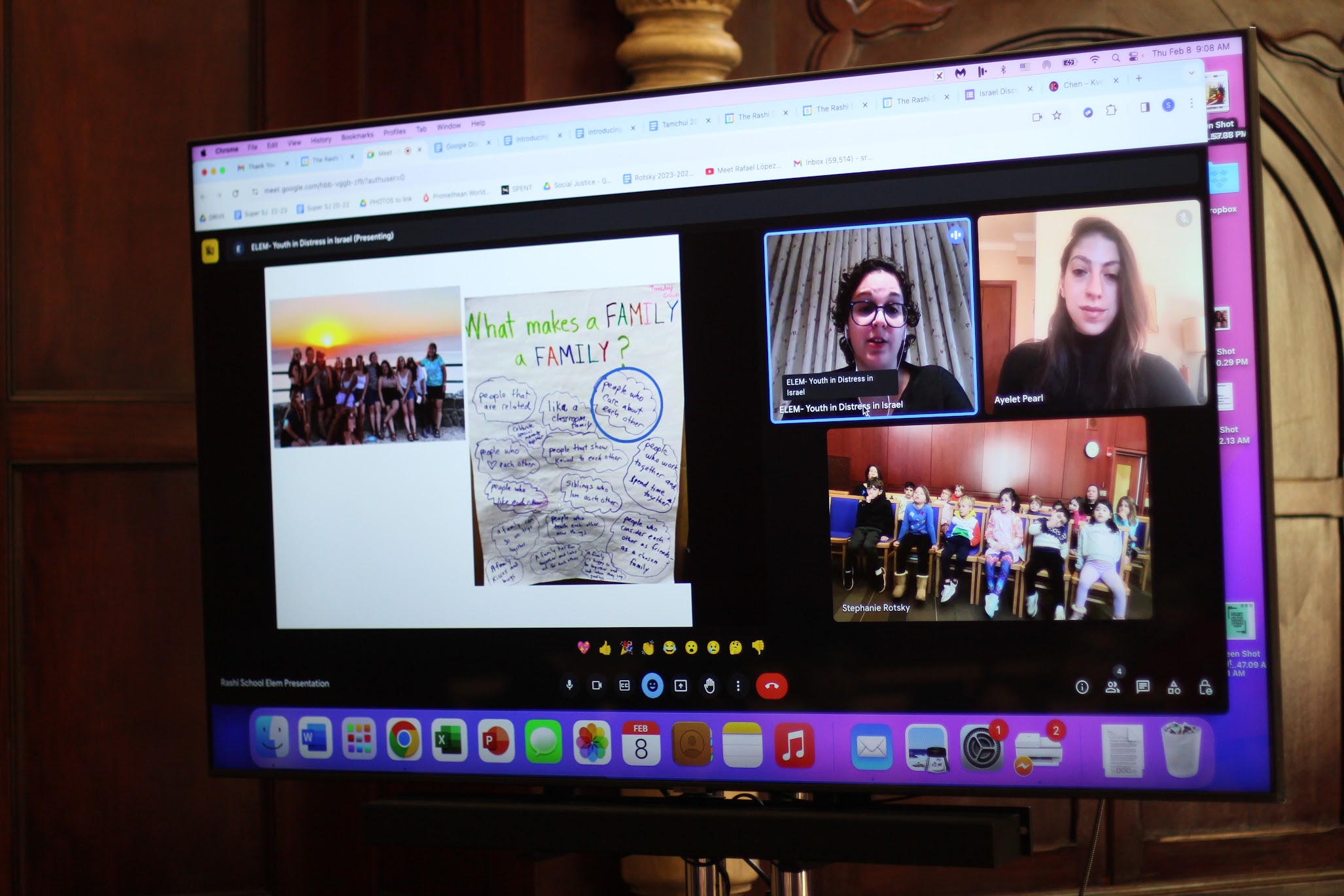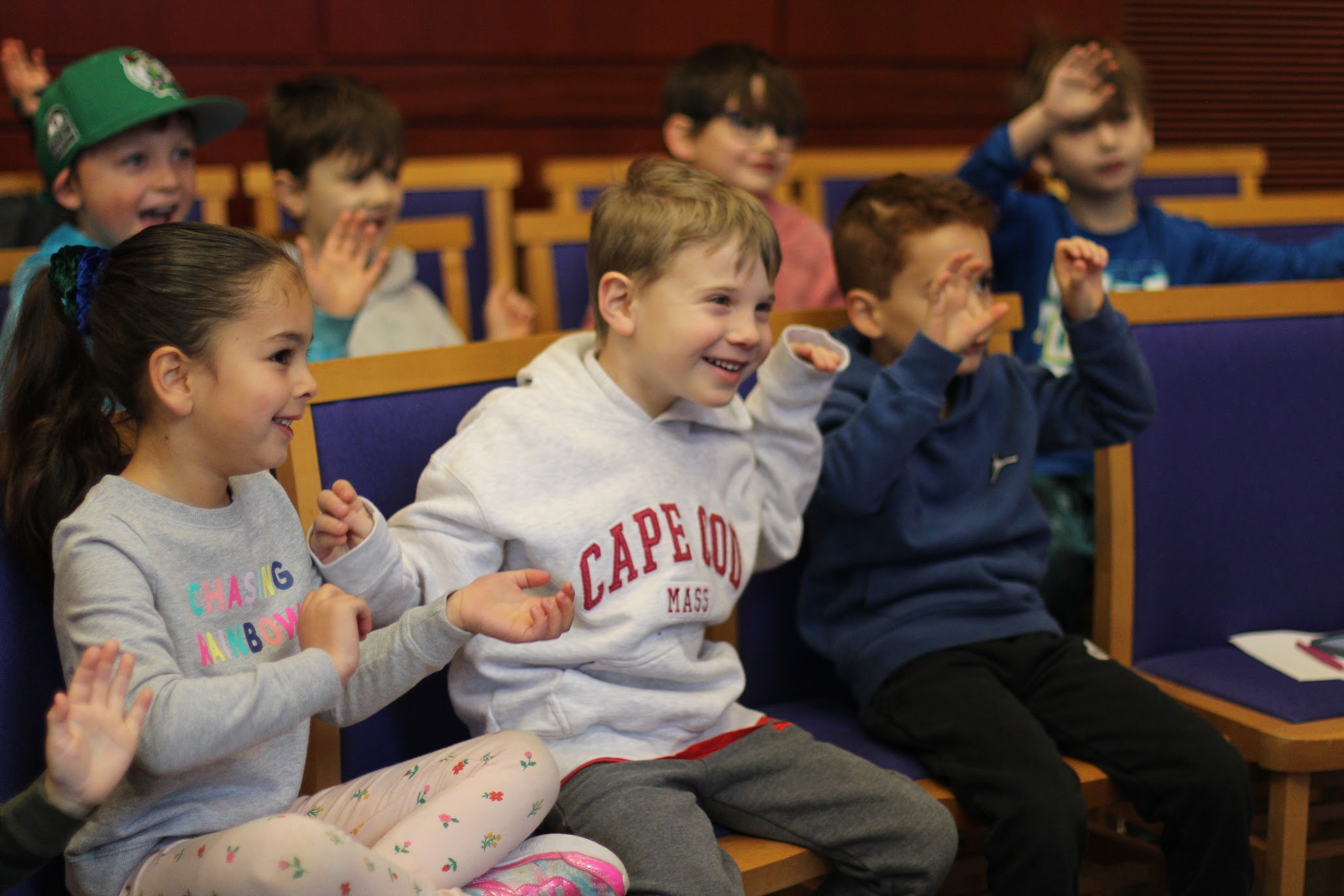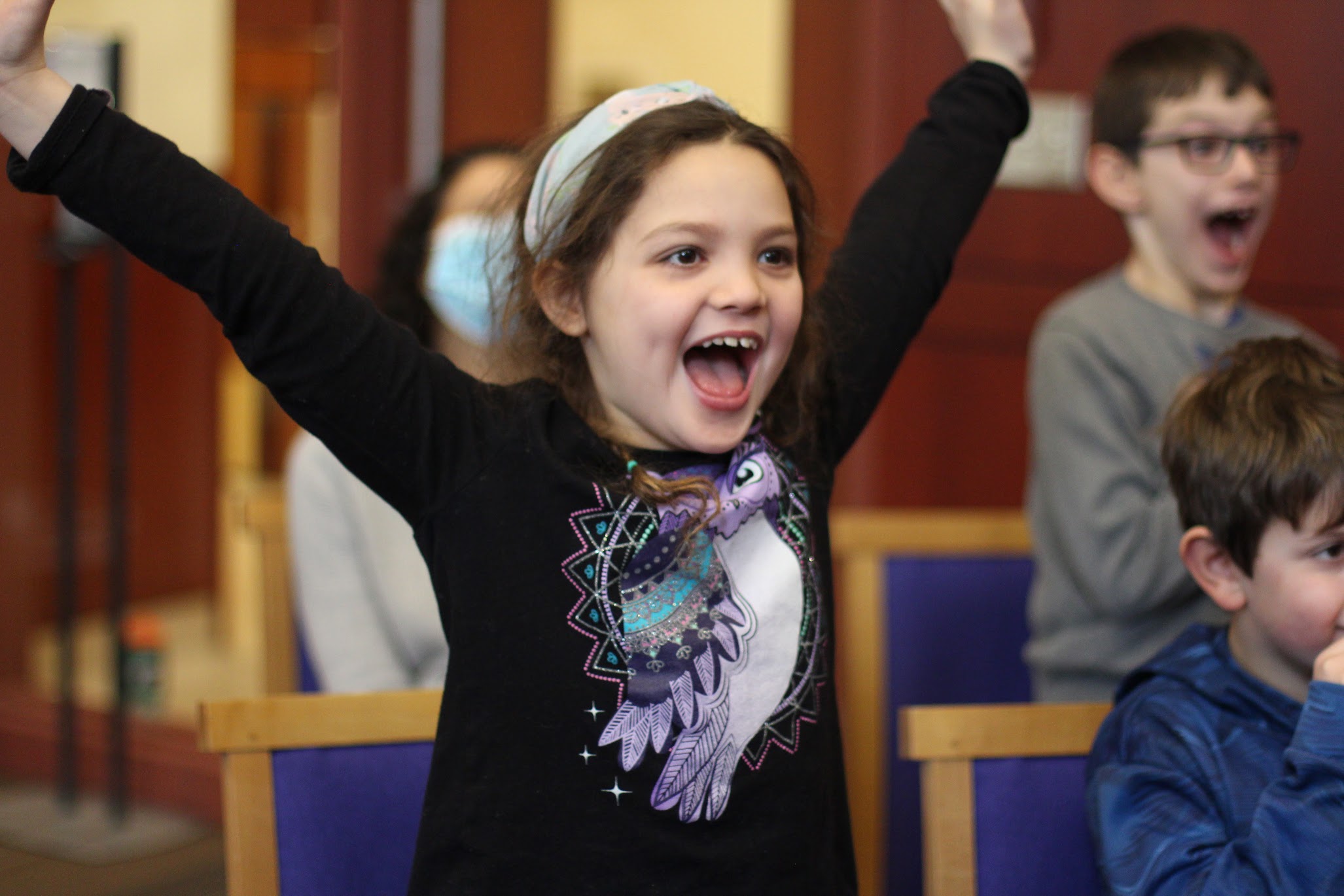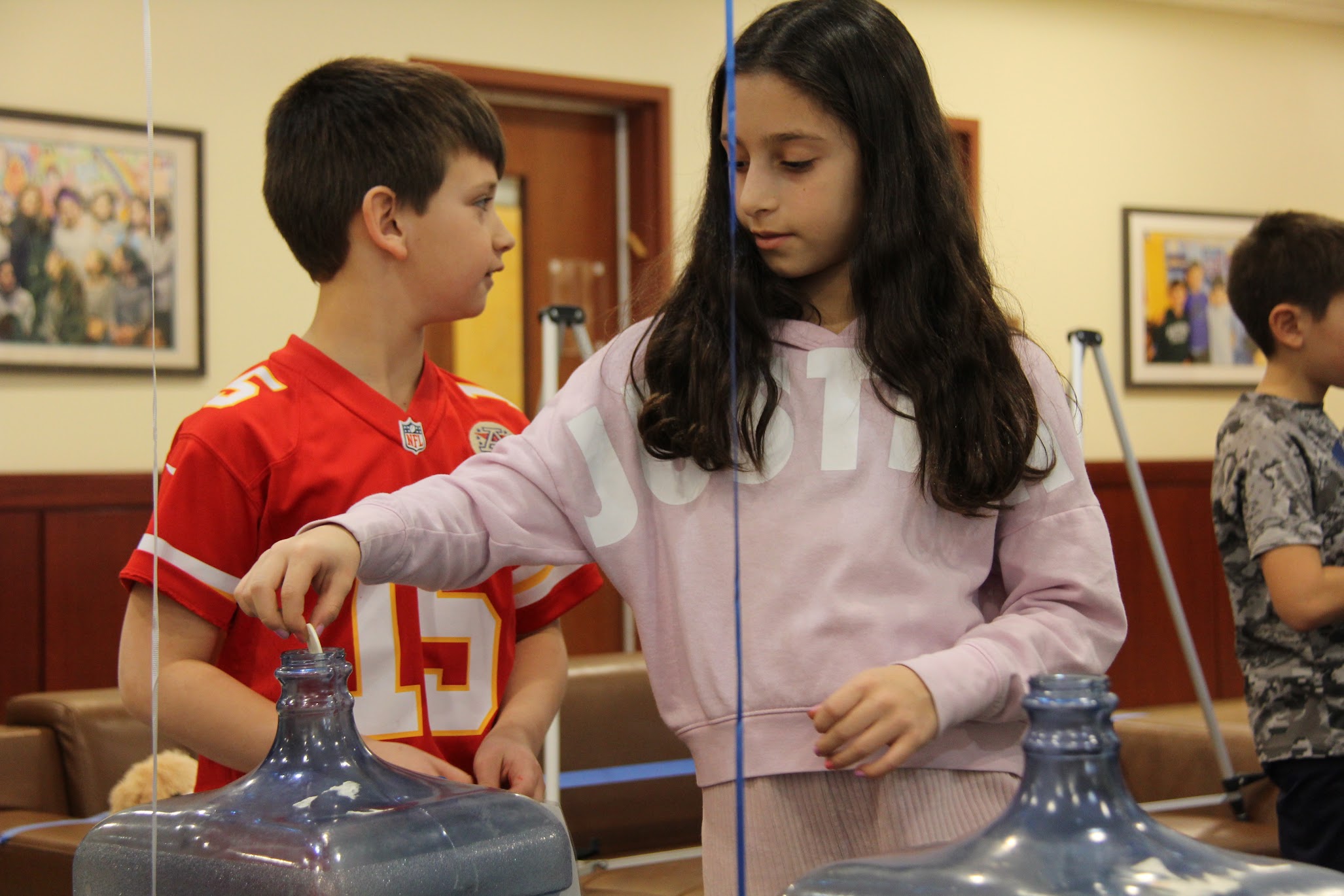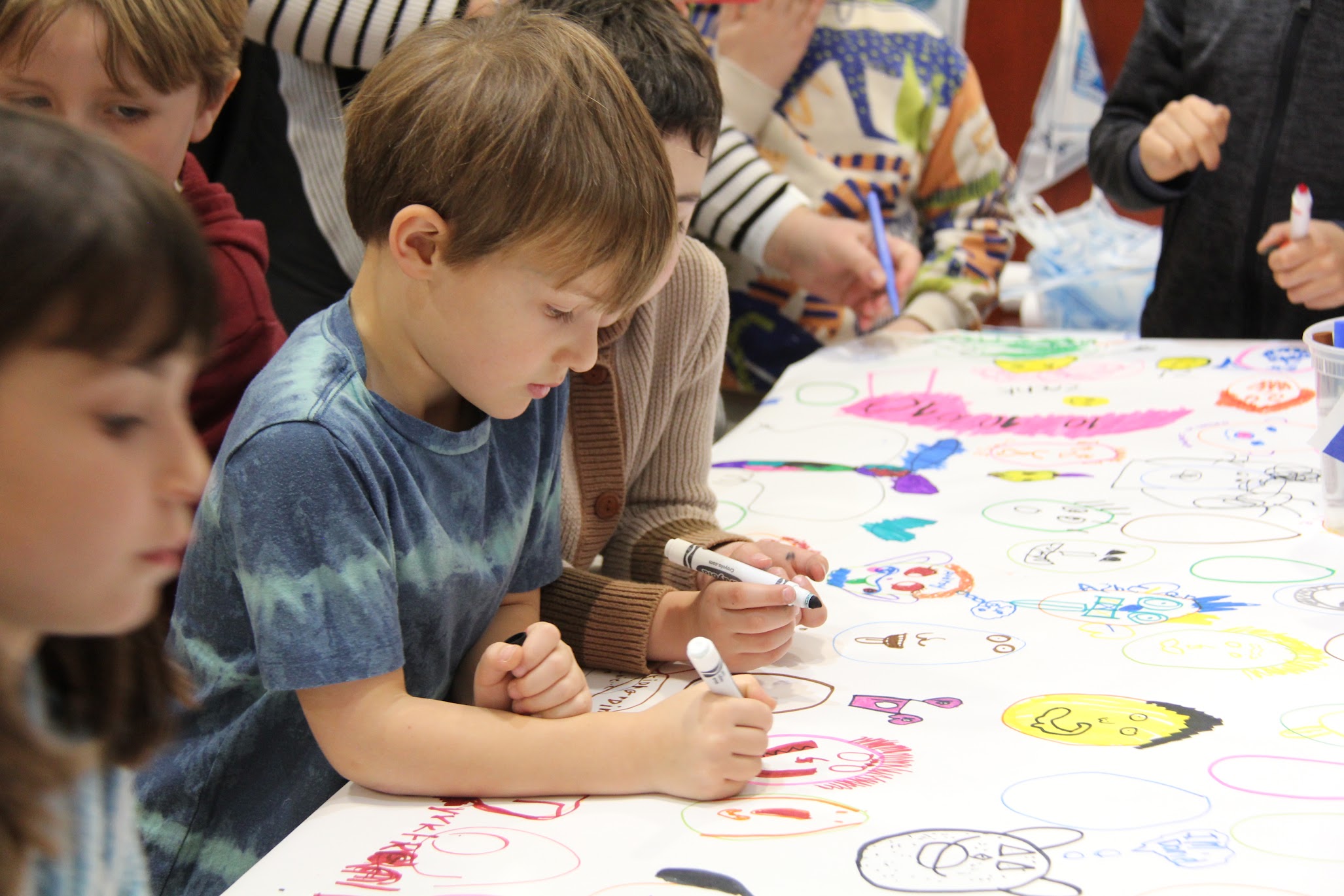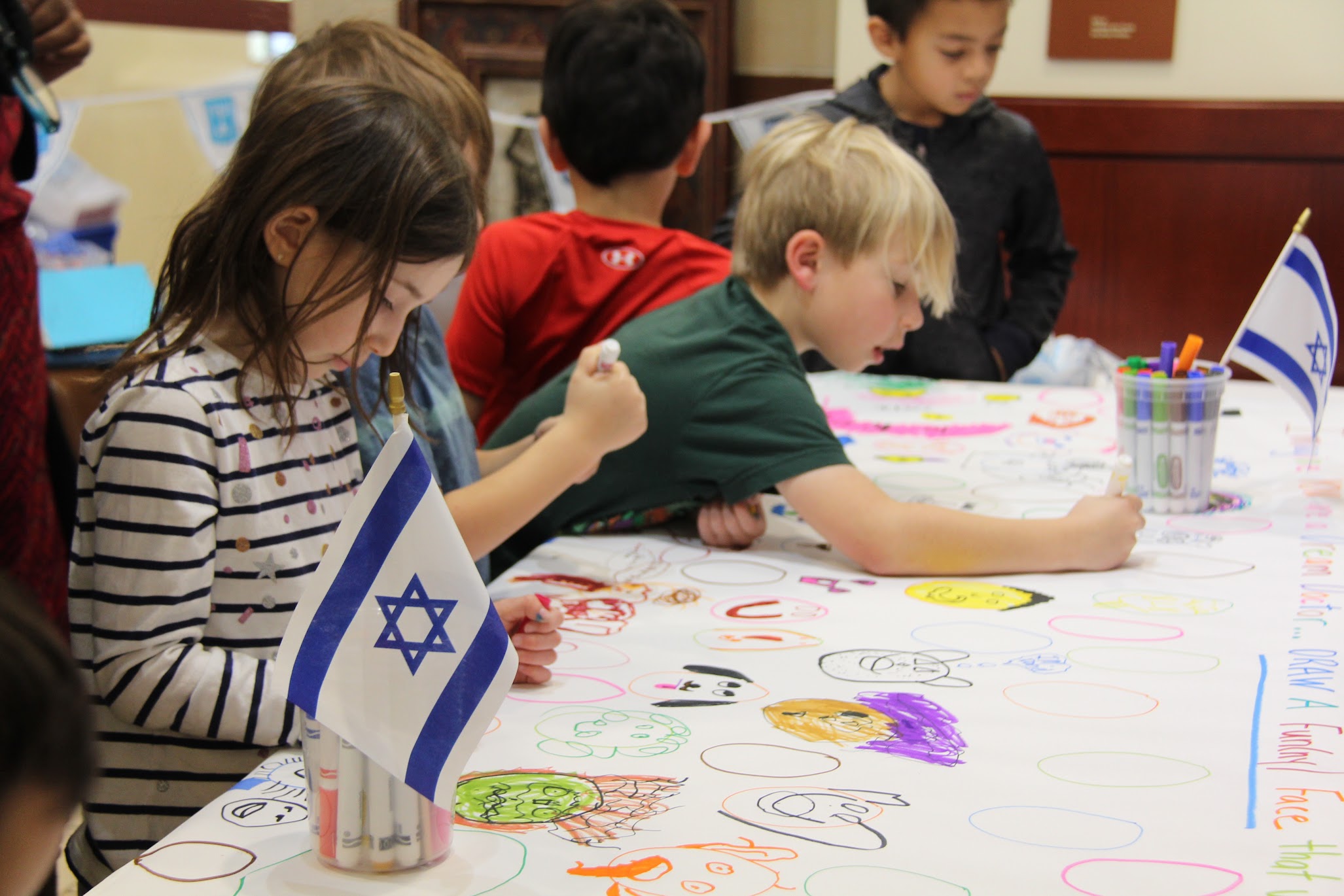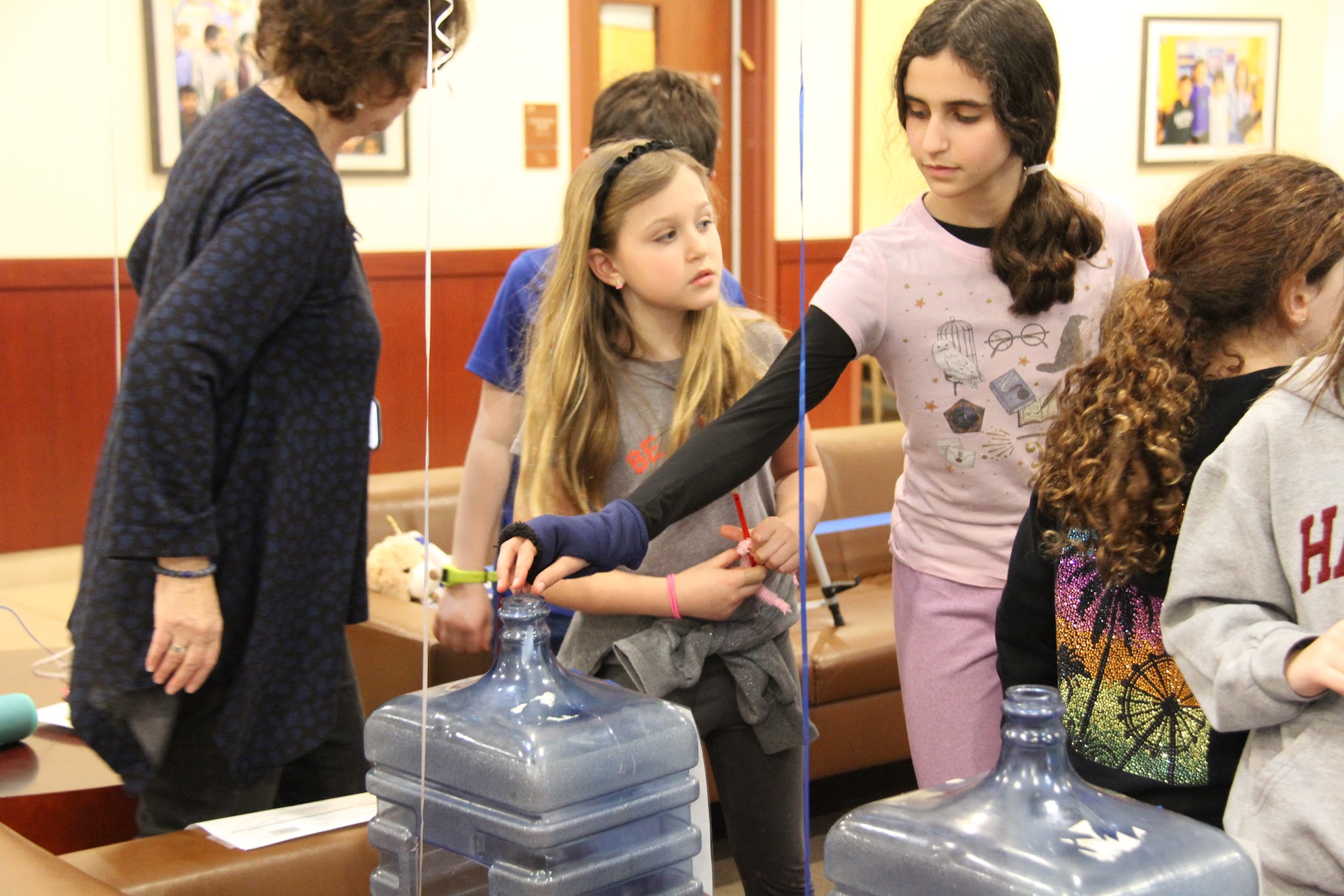The 30th year of the Suzanne and Bernard Pucker Tamchui Project came to a close today after weeks of incredible learning, organizing, and doing. Tamchui (meaning “community collection pot” in Aramaic) is Rashi’s annual three-week, all-school social justice initiative that teaches the community about current issues through powerful nonprofit organizations. This year, all six of the highlighted nonprofits worked directly on the ground with those in Israel who have been affected by the war. They were categorized into three areas of impact: mental health, access to healthcare, and civilian support. The first step to learning about these organizations is Rashi’s Education Week, during which our Middle Schoolers taught their Lower School peers about their missions.
From there, the following two weeks were Meet the Reps Week and Allocation Week. During Meet the Reps, students spoke directly with representatives from each of the nonprofits, learning straight from the source about what they do, what drives them to do the work, and whom it benefits. They learned about the healing power of fun and humor with medical clown Nimrod Eisenberg from Dream Doctors; the fast-acting, entrepreneurial spirit in Israel with Shani Yossefon from Brothers and Sisters of Israel; and fostering life-changing friendships between Jewish and Arab children with Lee Gordon from Hand in Hand.
“We talked to a Dream Doctor, they help people feel better when they’re sick. They went to clown school, and now they help people because they’re so funny,” said Kindergartner Logan RW.
“Hand in Hand runs a school that takes all kids—Arabs and Jews—and brings them together,” said third grader Andre S. “People said it wasn’t possible, but they proved them wrong.”
Each representative expertly presented their organization’s mission in age-appropriate ways. While Middle Schoolers met with the reps in a panel-style discussion that got further into the nitty gritty of their corresponding issues, Lower School students met them one-on-one, getting more in-depth as the grades progressed.
“It was wonderful. Chen from Elem specifically stood out to our class,” said Grade 1 lead teacher Janie Lubarsky. “Elem is an organization that connects with children, teenagers, and young adults who may not otherwise feel connected with family at home, and gives them a space to build community with volunteers and other clients. They even have vans that go out into neighborhoods to consistently check in with young people, building trusting relationships with them over time so they can feel safe and secure.”
“Chen had a PowerPoint with pictures of clients participating in activities that were relatable to our students, and she narrated it so it almost felt like a story as we learned about the organization,” Janie explained. “It was engaging in a way for the kids so that even though we were a Zoom link apart, we felt connected.”
Following Meet the Reps was Allocation Week, during which students applied their learning to decide which nonprofit they’d like to support. Using poker chips, the students “donate” to the organization of their choosing based on what stood out to them from their lessons, modeling real-world philanthropic action and its process.
“It empowers kids,” wrote Grade 3 student Micah B.
While they take turns putting forth their chips, the children also contribute to large group art pieces on which they can draw, leave notes for the representatives, or write down who they donated to and why.
“I donated to Dream Doctors and First Line Med,” said Grade 6 student Sadie H. “I thought it was cool that even though the Dream Doctors are clowns, they’re still able to help in such a big way.”
“I really liked that we got to work on the murals and send messages to people,” said second grader Georgia R.
While the poker chips used by students are symbolic, The Rashi School allocates funds to actually be sent to each of the nonprofits. We are eternally grateful for the time spent by both the organizations and our own students to educate each other on current events, and how people just like us are responding to help make our world a better, safer place for all.
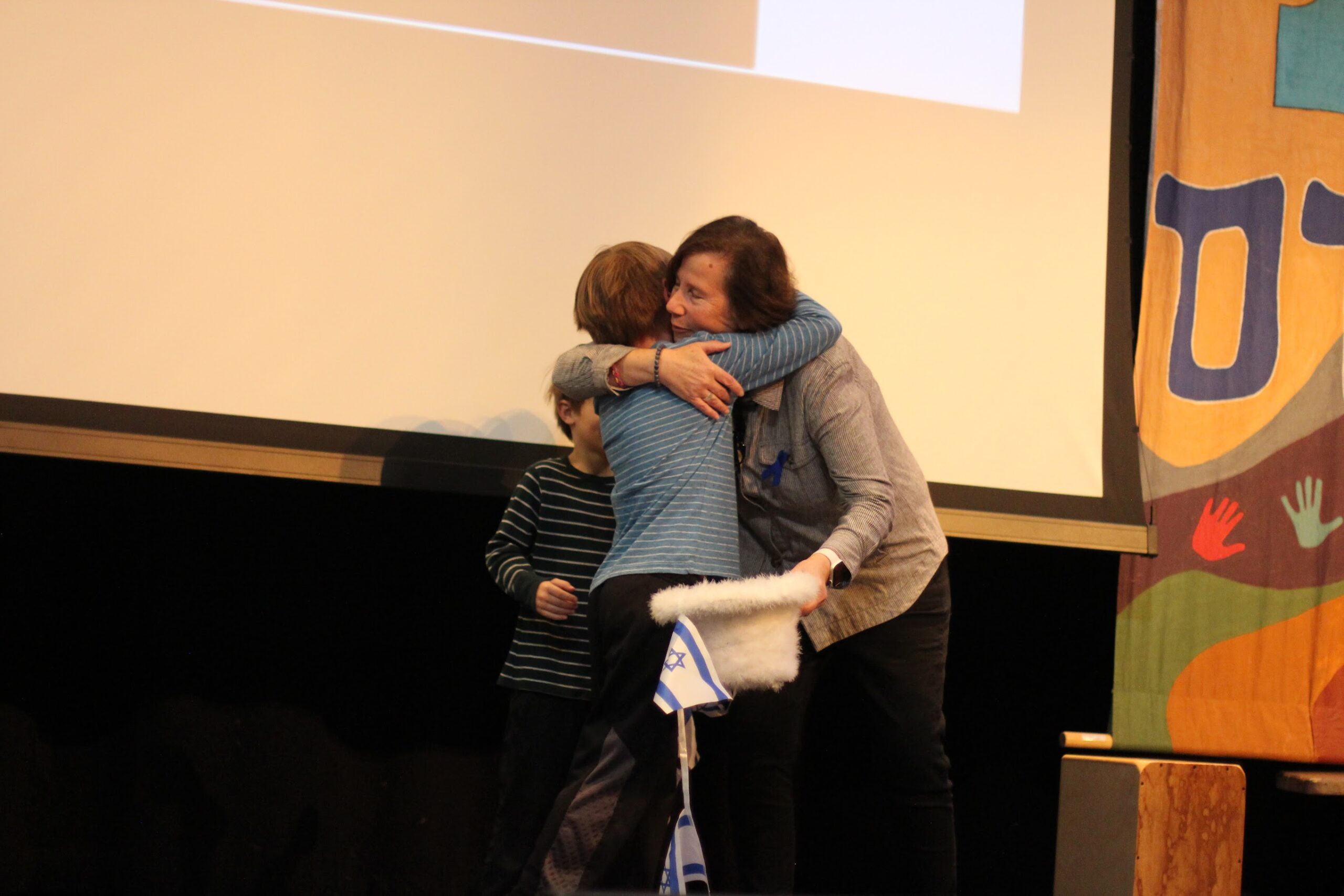
We are also grateful for Director of Social Justice Stephanie Rotsky, who over the past 30 years has put in countless hours, connected us to over 100 nonprofit organizations, and brought the spirit of tikkun olam (repairing the world) to every Rashi classroom during her tenure.


